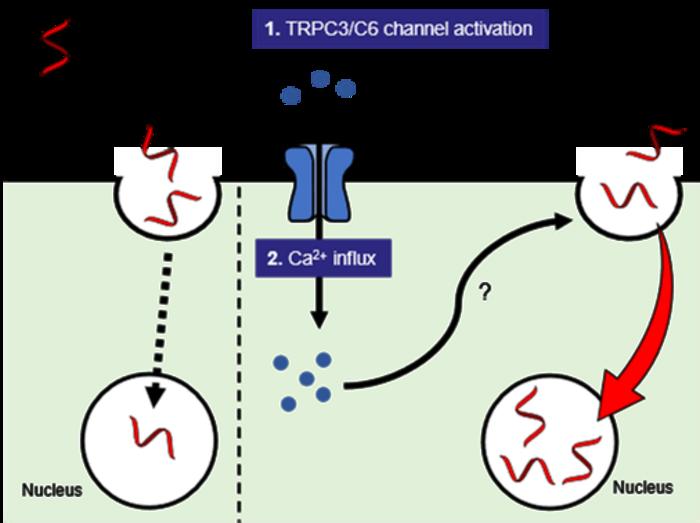Antisense oligonucleotides (ASOs) are a new type of drug that can treat diseases by blocking harmful messages from our genes. In people with cancer, ASOs could potentially stop messages that cause tumors to grow and spread. However, ASOs are not yet used to treat cancer because they need to get inside cancer cells first, and the cells won’t let them in.
Finding a way to deliver ASOs into cancer cells is a major challenge. Cancer cells have gatekeeper molecules that prevent unwanted substances from entering. Although researchers have tried many ways to get ASOs past these gatekeepers, success has been limited.
L687: A Key to Unlocking Cancer Cells
Researchers from Osaka University have discovered a way to deliver ASOs to their targets inside cancer cells. In a study published in the journal Nucleic Acids Research, the team synthesized a new compound called L687, which opens specific calcium permeable channels on the surface of cancer cells. When calcium flows into cells through these open channels, it tells the cells to let the ASOs in.
“We discovered that we could selectively activate the TRPC3/C6 calcium permeable channels with the activator L687,” explains lead author Hiroto Kohashi. “We then found that combination treatment with L687 and ASO promoted efficient uptake of ASO into cancer cells during laboratory tests and tumor cells inside the mouse. As a result, target gene activity was suppressed and ASO efficacy was enhanced.”
Expanding the Potential of ASO Therapy
Until now, ASOs have mainly been used to treat incurable diseases and had to be delivered into the liver or spinal fluid. According to the Osaka team’s research, L687 is an effective drug delivery system that may extend the benefits of ASO treatment to other parts of the body.
“We hope that the results of our research will lead to significant progress in the development and delivery of ASOs and similar gene-targeting drugs for treating cancer,” says senior author Masahito Shimojo.
The team believes that L687 could be particularly effective for delivering ASO therapy to lung or prostate cancers. These cancers have many TRPC3/C6 calcium permeable channels that can be opened by L687, potentially revealing new targets for these next-generation therapies.
The discovery of L687 as a means to unlock cancer cells for targeted gene therapy is a significant step forward in the fight against cancer. By enabling the delivery of ASOs directly into cancer cells, this new compound could pave the way for more effective and targeted cancer treatments. As researchers continue to explore the potential of ASOs and similar gene-targeting drugs, the future of cancer treatment looks increasingly promising.

